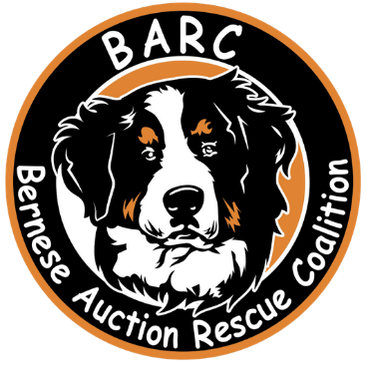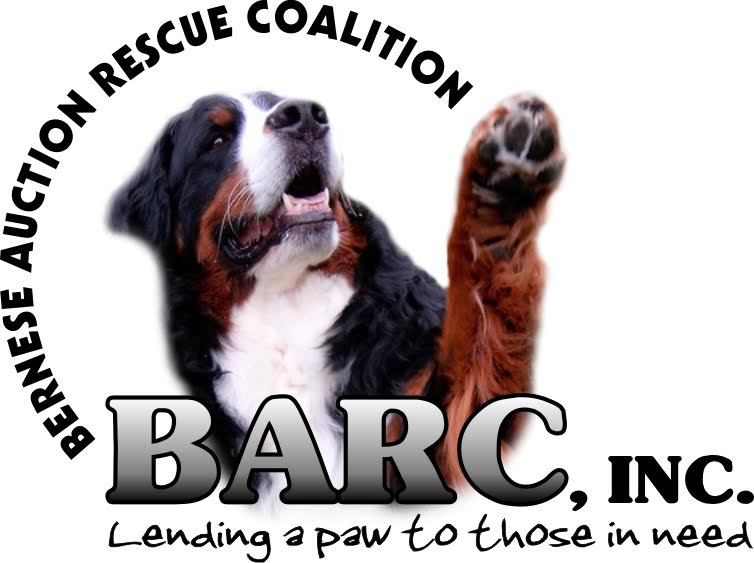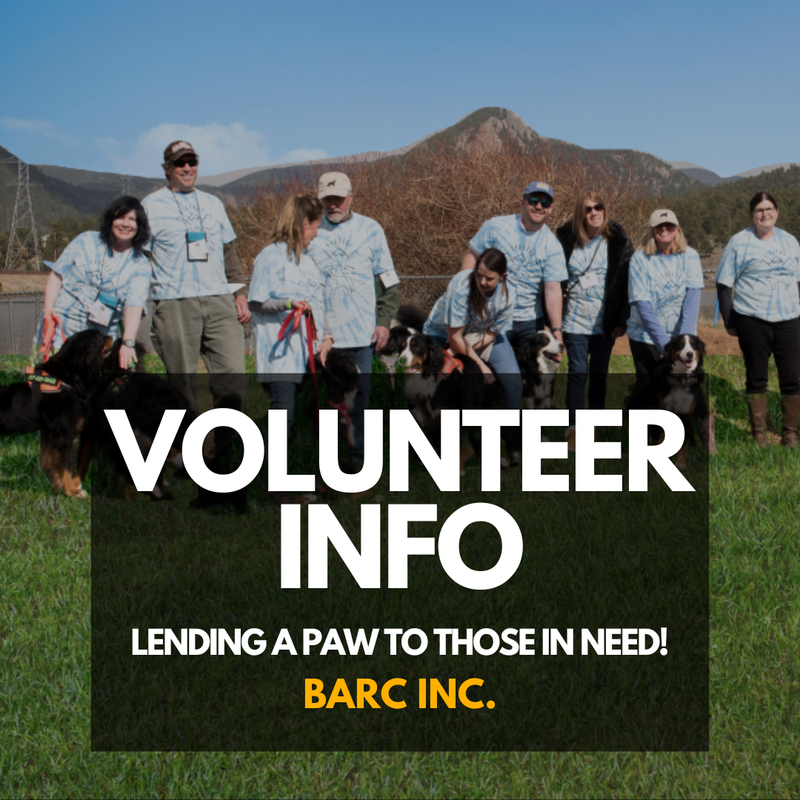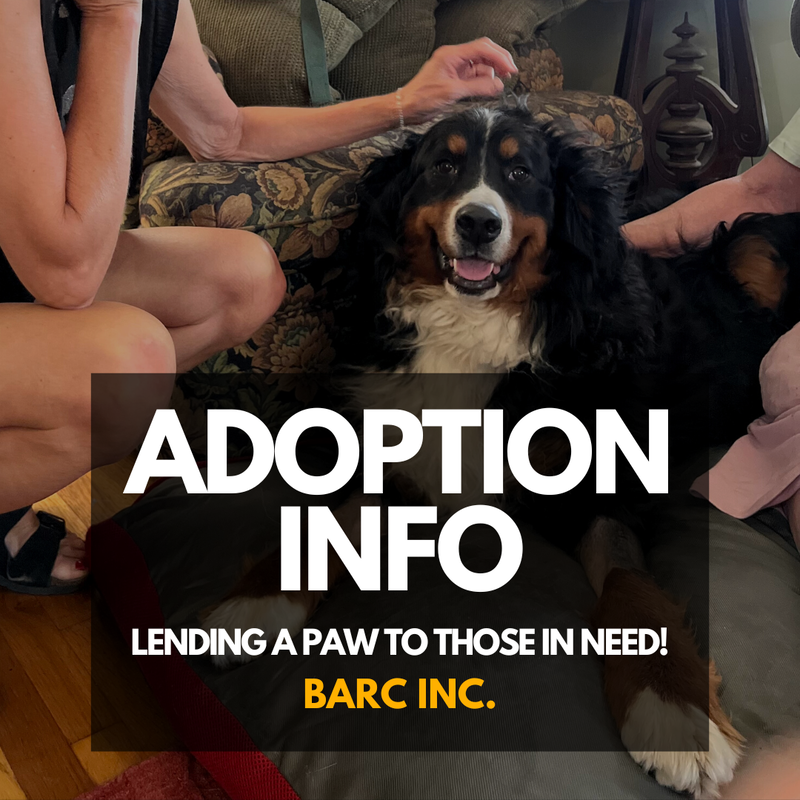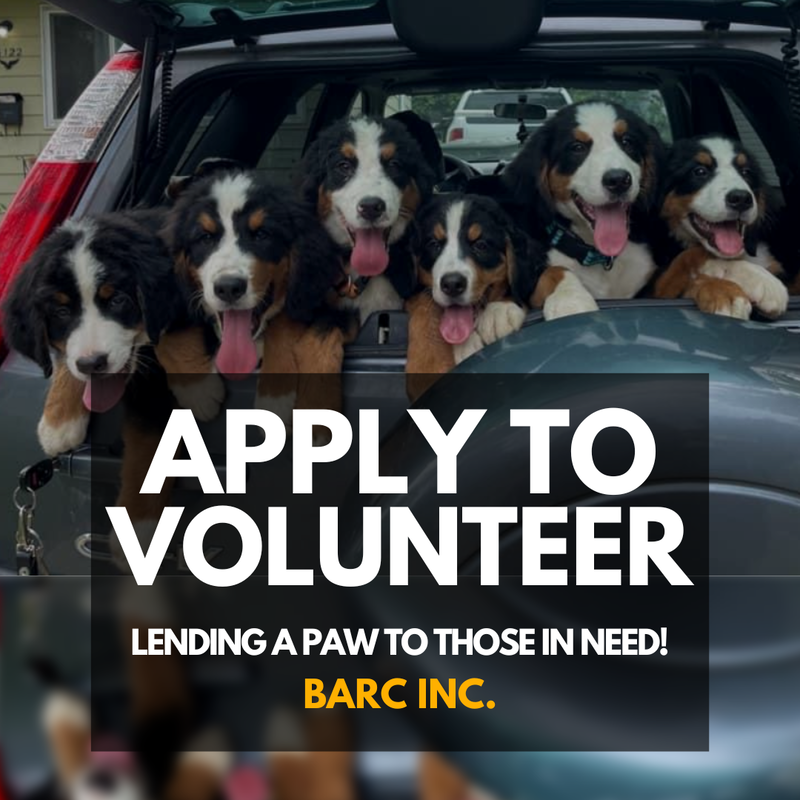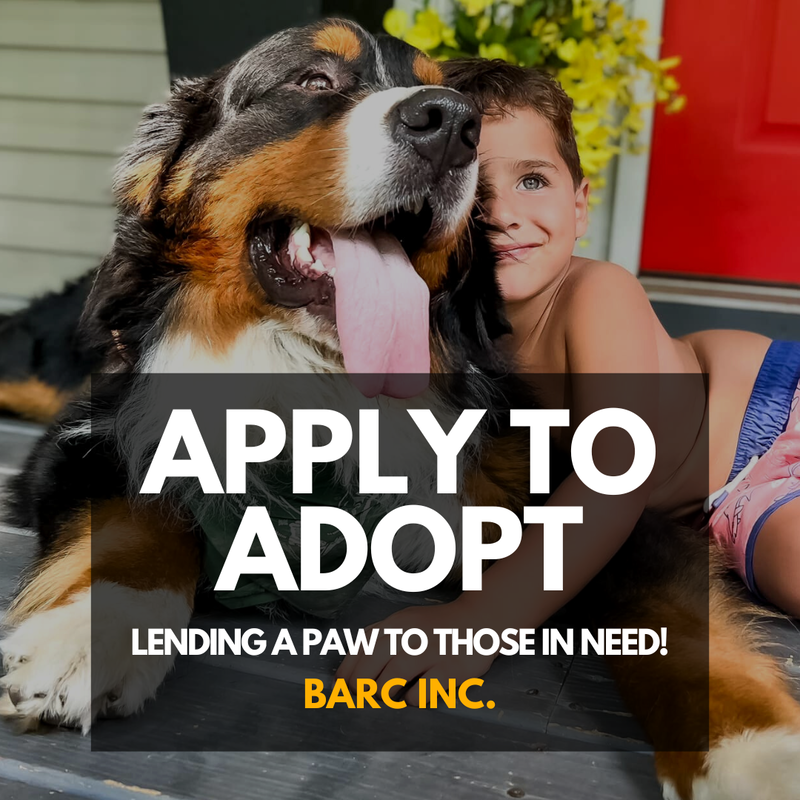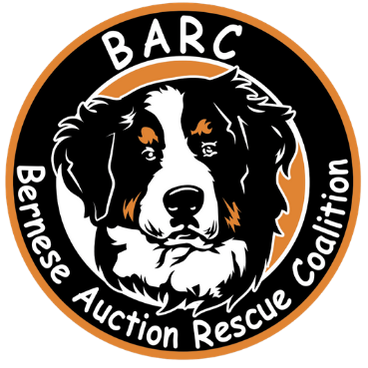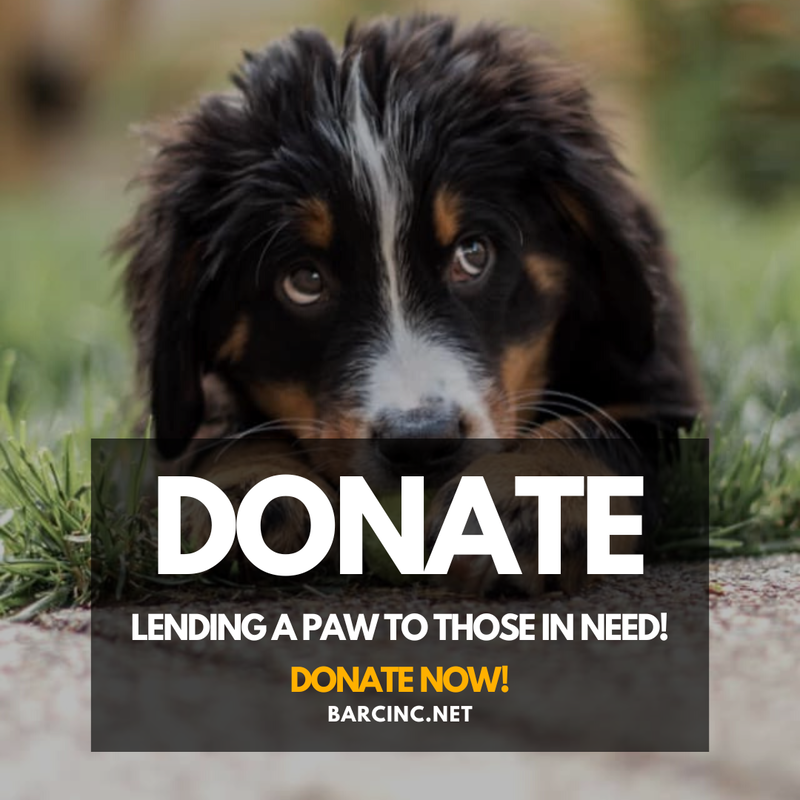Frequently Asked Questions
WHat Is Barc?
|
B.A.R.C. stands for Bernese Auction Rescue Coalition. We are a nonprofit organization run by volunteers who are dedicated to rescuing & rehabilitating purebred Bernese Mountain Dogs of all ages from owner surrenders, dog brokers, auctions, mills, and any other dangerous, exploitative or abusive situation. BARC, Inc. places these dogs in loving pet homes as spayed or neutered companions. We adopt through out the United States & Canada, but are based in the MidWest.
There are several "BARC" rescues that stand for other agencies, so we commonly get calls to help with other dogs and cats. I am sorry that we are not able to help. I suggest you Google" BARC near me" and you will be able to find a local rescues that will be able to help you. |
What is the adoption Process?
Last year, we had over 500 applicants. Due to the volume of applications we receive, we can no longer reply to every application submitted. We will contact potential adopters when and if we have a rescue that could possibly be a fit, and application screening will not take place until then. We do look at who has been waiting the longest, but we do NOT operate on a first come first served basis. We try to find the best home for the dog. That is our priority.
The things we look at in the application: how many hours will the dog be left alone, is there a fenced in yard, how many miles are you willing to travel to get the dog and what are you looking for as far as age and sex of the dog.
The adoption coordinator gets information from the foster about their personality: shy, fearful, aggressive, adjusted, etc. Then based on that they decide whether the home can have children or needs a quiet home. Then they discuss can the dog walk on a leash or not, go in and out a door, if it has food issues and so on.
The adoption coordinator pulls the applications that meet the dog’s needs and fits the description of the kind of dog the family desires. She sends those to the foster parent to look over and help rank as to whom they would like to phone interview first, second, etc. The adoption coordinator will call the first selected person discuss adoption fees for that particular dog and gets them in touch with the foster parent. Then the adoption coordinator and the foster confer and decide if that placement was a good fit or should they try the next placement.
Once they find the perfect fit for the family and dog the adoption coordinator will call that prospective adopter and finalize the adoption. A day or two later the contract will be emailed to the adopter. It will need to be signed and given to the foster when they pick up the dog along with the fee, if it has not already been paid.
There are a few things that you should know!
Our contract is a standard rescue contract that states that BARC is s co-owner to the adopted dog. Do NOT freak out. This is to retain the right if your dog was neglected or abused or was trying to be sold, BARC would get the dog back. BARC will take any of adopted dogs back willingly. We are not going to storm your house and take your dog away. We are concerned with the welfare of our dogs and if you treat them like you say in your applications there will be no problem. We know circumstances change and if you let us know we will help out because we are now BARC family. I don’t think we have ever taken a dog back unless we were asked to.
Most of our dogs come from breeder releases, either directly or through auction. The dog’s prior way of life is not the same as a puppy raised in a home. Some have no social skills and are extremely timid; so fearful they cringe at human touch and can’t look you in the eye. That is the extreme of the spectrum, but one will not be able to walk that dog on a leash. It will need a secure fence where it can shoot out the door and pray that you can get them back in without chasing them around the yard a few dozen times until they are so scared they head to the house because you are now a crazy person. Yes, it has happened. Take them out on a long lead, they do not want to poop in front of you. Luckily, we have the other end of the spectrum where the dogs takes everything in stride and is happy-go-lucky and is enjoying a house for the first time. Puppies usually do not come with as many issues, but they may have a few eccentric behaviors. Mostly, they want attention and love. AS do ALL our rescues!
We DO get puppies at various times, but we do not post those on our website or Facebook page as we will get hundreds of applications I one day. We cannot handle that kind of volume.
BARC is made up of volunteers; many with full time jobs. We TRY to get back to people in a timely manner, but it is not always possible. The best way to reach us is through Facebook messenger. We can then get your message to the right person.
***Tips***
The more information you fill out on the application the better. Describe your fencing situation in detail. Our adoption Coordinator has hundreds of applications to go through PLEASE if you are serious about adopting reapply every 6 months. It takes a long time to adopt dogs out because BARC will call and leave a message and three days go by and we call again and they have already gotten another dog. It is fine that you found another dog elsewhere, we are happy for you. Please don’t hold up the adoption process. Please respond as soon as you can.
For those of you that have changed your mind and no longer want to adopt for whatever reason, please Facebook message us and tell us to take you off the list.
The things we look at in the application: how many hours will the dog be left alone, is there a fenced in yard, how many miles are you willing to travel to get the dog and what are you looking for as far as age and sex of the dog.
The adoption coordinator gets information from the foster about their personality: shy, fearful, aggressive, adjusted, etc. Then based on that they decide whether the home can have children or needs a quiet home. Then they discuss can the dog walk on a leash or not, go in and out a door, if it has food issues and so on.
The adoption coordinator pulls the applications that meet the dog’s needs and fits the description of the kind of dog the family desires. She sends those to the foster parent to look over and help rank as to whom they would like to phone interview first, second, etc. The adoption coordinator will call the first selected person discuss adoption fees for that particular dog and gets them in touch with the foster parent. Then the adoption coordinator and the foster confer and decide if that placement was a good fit or should they try the next placement.
Once they find the perfect fit for the family and dog the adoption coordinator will call that prospective adopter and finalize the adoption. A day or two later the contract will be emailed to the adopter. It will need to be signed and given to the foster when they pick up the dog along with the fee, if it has not already been paid.
There are a few things that you should know!
Our contract is a standard rescue contract that states that BARC is s co-owner to the adopted dog. Do NOT freak out. This is to retain the right if your dog was neglected or abused or was trying to be sold, BARC would get the dog back. BARC will take any of adopted dogs back willingly. We are not going to storm your house and take your dog away. We are concerned with the welfare of our dogs and if you treat them like you say in your applications there will be no problem. We know circumstances change and if you let us know we will help out because we are now BARC family. I don’t think we have ever taken a dog back unless we were asked to.
Most of our dogs come from breeder releases, either directly or through auction. The dog’s prior way of life is not the same as a puppy raised in a home. Some have no social skills and are extremely timid; so fearful they cringe at human touch and can’t look you in the eye. That is the extreme of the spectrum, but one will not be able to walk that dog on a leash. It will need a secure fence where it can shoot out the door and pray that you can get them back in without chasing them around the yard a few dozen times until they are so scared they head to the house because you are now a crazy person. Yes, it has happened. Take them out on a long lead, they do not want to poop in front of you. Luckily, we have the other end of the spectrum where the dogs takes everything in stride and is happy-go-lucky and is enjoying a house for the first time. Puppies usually do not come with as many issues, but they may have a few eccentric behaviors. Mostly, they want attention and love. AS do ALL our rescues!
We DO get puppies at various times, but we do not post those on our website or Facebook page as we will get hundreds of applications I one day. We cannot handle that kind of volume.
BARC is made up of volunteers; many with full time jobs. We TRY to get back to people in a timely manner, but it is not always possible. The best way to reach us is through Facebook messenger. We can then get your message to the right person.
***Tips***
The more information you fill out on the application the better. Describe your fencing situation in detail. Our adoption Coordinator has hundreds of applications to go through PLEASE if you are serious about adopting reapply every 6 months. It takes a long time to adopt dogs out because BARC will call and leave a message and three days go by and we call again and they have already gotten another dog. It is fine that you found another dog elsewhere, we are happy for you. Please don’t hold up the adoption process. Please respond as soon as you can.
For those of you that have changed your mind and no longer want to adopt for whatever reason, please Facebook message us and tell us to take you off the list.
Do You Have any puppies or dogs available?
The dogs we currently have up for adoption are featured on our Facebook page in the "Available Berners" album. Dogs in that album are currently looking for a home. We may have other dogs in foster that we will be adding to the file once we learn of their personality & the type of home they need. If we have an applicant that meets a dogs needs, we may contact them immediately instead of listing the dog for adoption.
We do get puppies, but because we have so many approved homes waiting for puppies they rarely make it to the available page. If you are ONLY interested a puppy, we suggests you apply and join the pool of people waiting for the little ones to come in. Please apply at here so we know what you are looking for.
We do get puppies, but because we have so many approved homes waiting for puppies they rarely make it to the available page. If you are ONLY interested a puppy, we suggests you apply and join the pool of people waiting for the little ones to come in. Please apply at here so we know what you are looking for.
I'm interested in adopting, how do I apply?
Please, go to barcinc.net to apply by filling out the application or use the links below. The more information you can supply the better. A fenced yard is needed for most dogs and the farther you can travel to get the dog is better. Added information will allow BARC to find the dog that will fit in best with your family. Thank you for your interest in BARC.
How Can I Help?
We always need volunteers (transporters & fosters)! You can donate or buy items from our shop! See the Volunteer Page!
